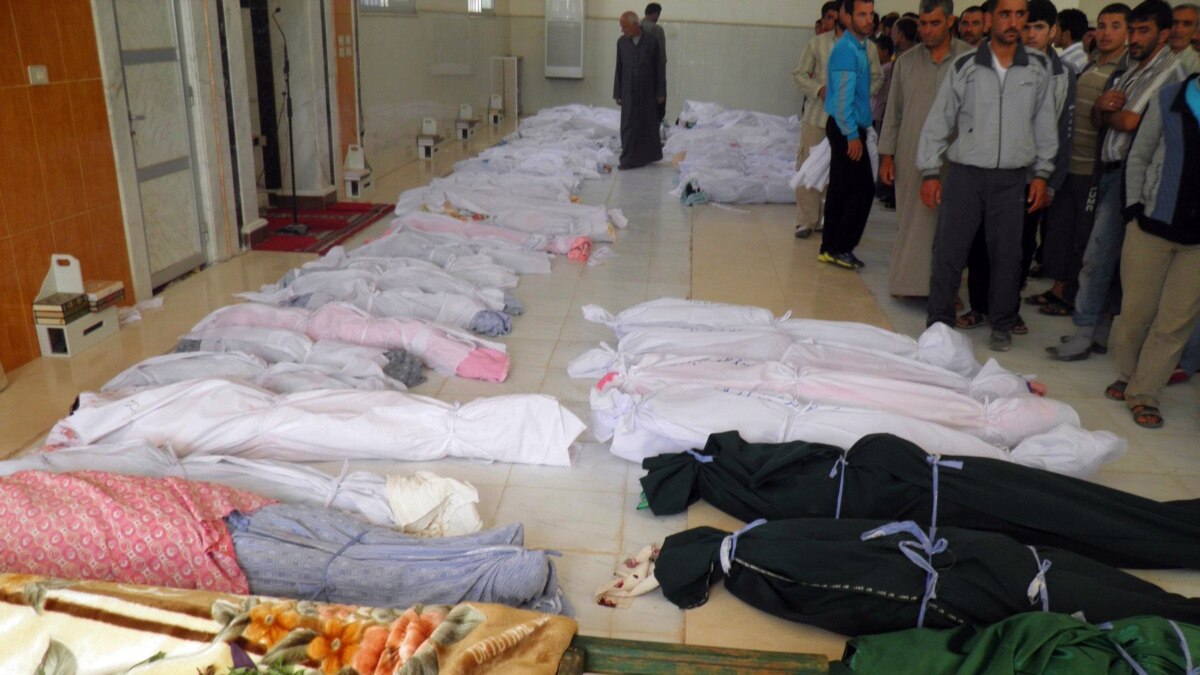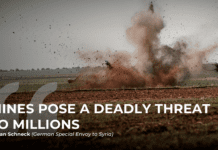
As numerous Arab states rush to normalize relations with Bashar al-Assad’s regime, it is crucial to remember the nearly 6 million Syrians who have fled the terror and brutality inflicted by his regime, as the 11th anniversary of the infamous Houla Massacre is observed.
On May 25th, 2012, the serene town of Taldou in Houla, Syria, was ravaged by a massacre that claimed the lives of over 100 individuals, predominantly women and children. The assault was perpetrated by Assad’s military and pro-government militias, who subjected civilians in the area to a relentless onslaught of bullets and artillery shells. They proceeded to methodically move from house to house, using knives and small arms to execute the occupants.
The Houla massacre triggered an outpouring of international outrage, with numerous global leaders denouncing the heinous attack and demanding an end to the violence in Syria. Even Russia, an ally of Assad, commented on the incident, with the then newly appointed Russian foreign minister, Sergey Lavrov, stating, “The government bears the main responsibility for what is going on,” while the UAE referred to it as “a violation of our shared humanity.”
The atrocity led to heightened diplomatic pressure on the Syrian government and prompted the UN Security Council to issue a statement condemning the massacre and calling for an independent investigation. A statement from the UN Security Council attributed the killings to the Assad regime based on “confirmed killings by UN observers.” The attacks were described as involving “the wanton killings of civilians by shooting at close range and by severe physical abuse by pro-regime elements, as well as a series of government artillery and tank shelling in a residential neighborhood.”
According to the UN, at least 108 individuals were killed, including 34 women and 49 children, while over 400 families were displaced. The barbarity of the event galvanized both the world and the Syrian revolution. However, today, it seems that the world has all but forgotten this tragic event, as one survivor lamented, “The UN observers’ delegation remained helpless and did not take any initiative to intervene, except to count the victims the day after the massacre, just as they did in Sarajevo and Srebrenica in Bosnia.”
The Houla massacre stands as a tragic event with far-reaching consequences for Syria and the global community. It serves as a grim reminder of the brutality of war and the toll it exacts on innocent civilians. Despite the passage of time, the memories of the Houla massacre continue to haunt those who were affected by it. If the world is unwilling to take action beyond merely counting the victims, such tragedies are likely to be repeated.









